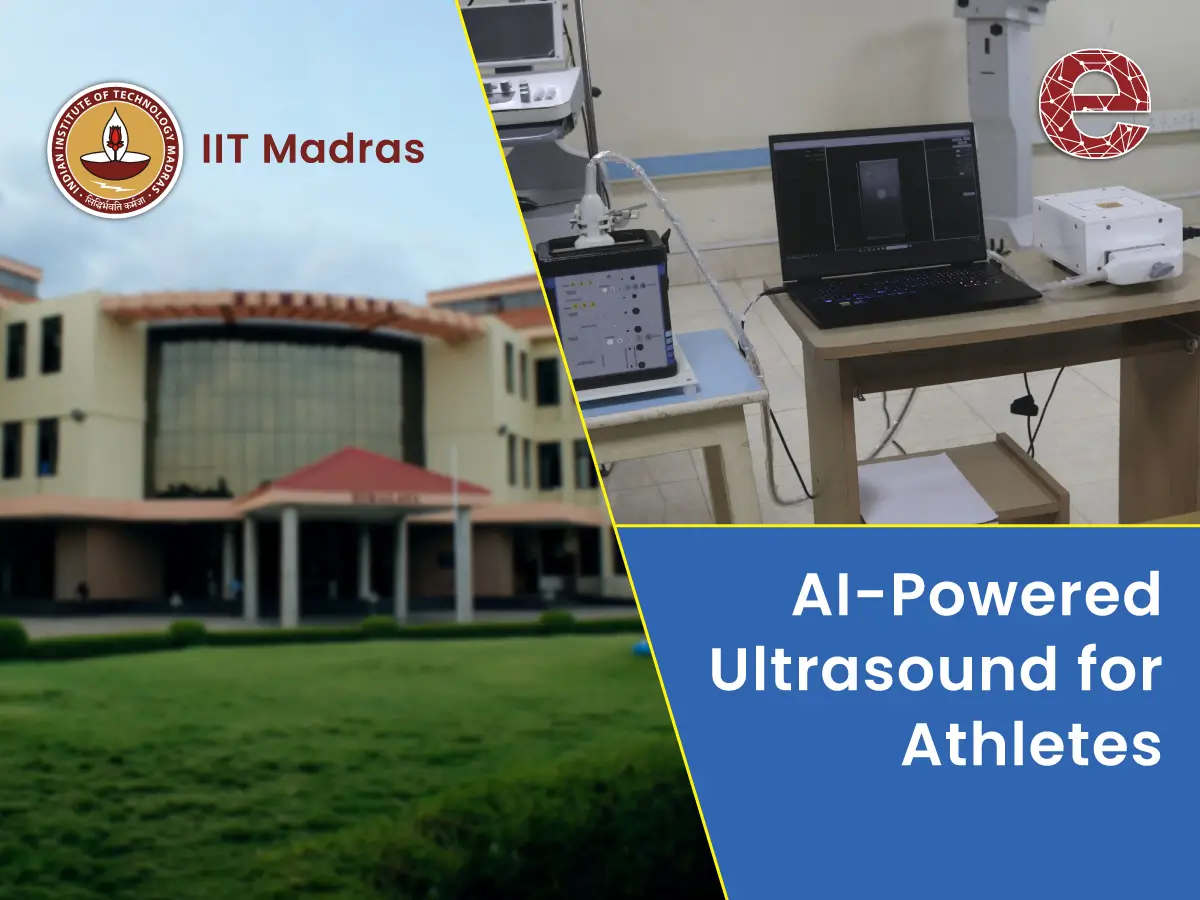Revolutionary AI-Powered Ultrasound from IIT Madras: A New Era in Sports Injury Diagnosis
Campus News

Researchers at IIT Madras have unleashed a game-changing portable ultrasound scanner designed for diagnosing sports injuries. This gadget might turn every coach into a medical superhero, swooping in to save the day with a quick scan instead of fumbling through a first aid kit.
This cutting-edge Point-of-Care Ultrasound (POCUS) device, created by the Centre of Excellence in Sports Science and Analytics (CESSA), aims to transform how sports injuries are evaluated, particularly during matches and training sessions. By enabling immediate, real-time assessments, the AI-powered POCUS scanner empowers medical professionals to swiftly gauge the severity of injuries, allowing them to make informed decisions about whether a player can safely continue participating in the game.
According to Professor Arun K. Thittai, the Department of Applied Mechanics and Biomedical Engineering lead researcher at IIT Madras, "A prompt evaluation of musculoskeletal injuries on the field is crucial for providing athletes with immediate medical attention and focusing on their recovery."
Advantages of the Portable Ultrasound Scanner:
The POCUS scanner offers numerous benefits compared to conventional imaging techniques. One of its most notable features is the absence of radiation, making it a safer option for athletes. Furthermore, it delivers high-resolution images, enhancing the accuracy and efficiency of diagnosing sports-related injuries.
The device is in its prototype phase, with plans for product development expected to be finalised by 2024. This advancement could significantly improve the management of athlete injuries and rehabilitation, providing enhanced care during training and competitive events.
The POCUS scanner will also integrate with a broader AI platform dedicated to comprehensive athlete management. This expansive system will gather data from the ultrasound device, facilitating the creation of personalised recovery plans tailored to each athlete's specific needs.
Professor Thittai noted, "We are actively exploring all avenues to commercialise POCUS for musculoskeletal imaging, aiming for widespread implementation in the sports industry."
Leading Innovation in Sports Science:
IIT Madras' CESSA is committed to becoming a global frontrunner in sports technology innovation. Ramesh Kumar, CEO of CESSA, commended the project, stating, "This device represents yet another groundbreaking initiative focused on indigenization, which we believe will make a significant impact in the realm of sports."
With ongoing research funding and robust government support, IIT Madras is making remarkable strides in sports technology. It is dedicated to enhancing athlete care and performance while shaping the future of sports medicine.
You can also read : IIT Ropar and Excelsoft Introduce AI Lab for Educational Innovation
- IIT Madras
- AI-Powered Ultrasound











